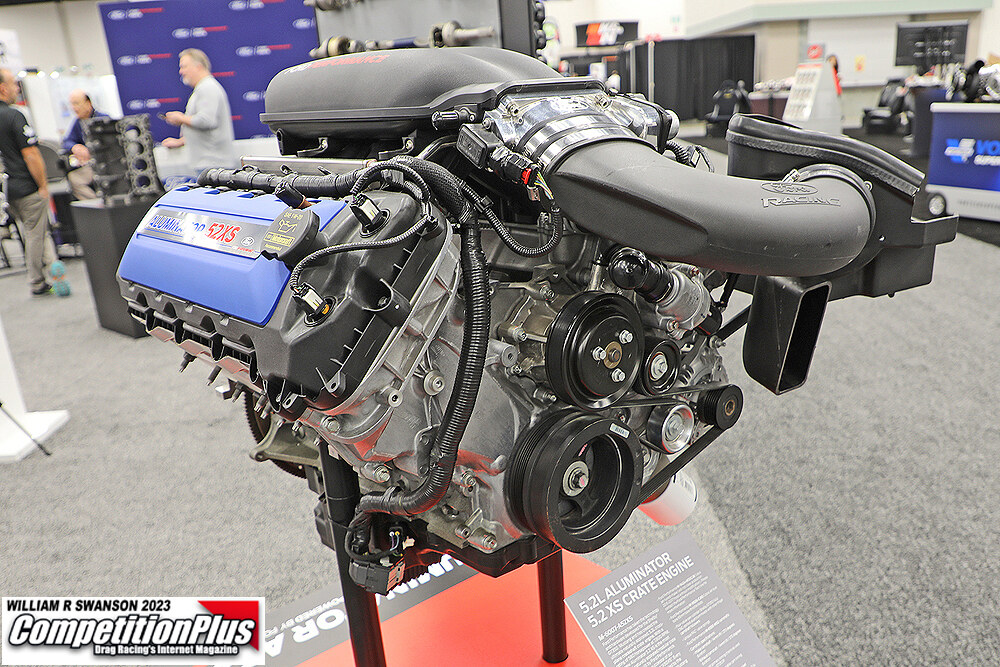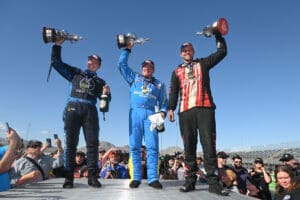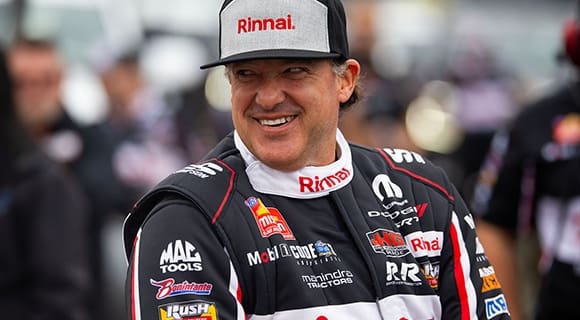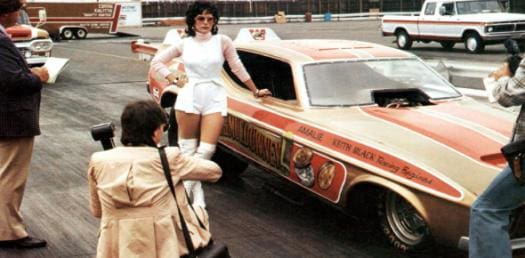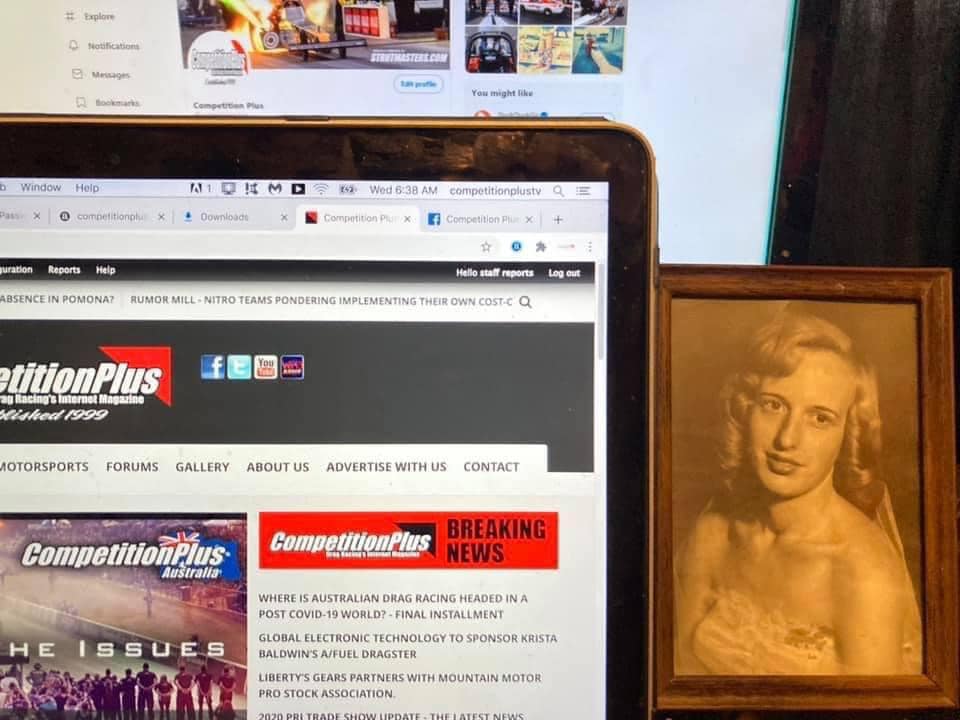 There are times when Ozzy Moya wonders, “Why in the world do I run a dragstrip?”
There are times when Ozzy Moya wonders, “Why in the world do I run a dragstrip?”
Then there are others when he wonders what he would do without it.
“Honestly, it’s a love/hate relationship,” Moya said when asked what makes him want to be a dragstrip owner. “I believe there’re some racers that appreciate everything you do. And it keeps you motivated, but then some of them just bash you, and they’re never satisfied. And it makes you think, ‘Well, what do I do this for?’ I will tell you that the good ones outweigh the bad ones. I would say that 80% of the people that do appreciate what you do — and they do — when things go wrong, they make a phone call to me, It outweighs the negatives. You’ve always got those one bad apples or two bad apples that honestly sometimes make you wonder, ‘Why do I do this?’
“I think you have to have a passion for racing. You have to have a passion for the sport. I really believe that’s what it comes down to. Because it isn’t about the money, that’s for sure, because I know the racers invest a lot to go racing, and we, as track operators, invest a lot to keep the doors open. It costs you marriages, it costs you, employees, it costs you relationships, and it’s a tough sport. It really is. Because you give up every weekend of your life for this, and sometimes you do feel underappreciated, but for the most part, you’ve got to have a love for it.”
Moya, a former major league baseball pitching prospect, first entered the dragstrip business in 2011 when he opted to lease out the old Lakeland (Fla.) Dragstrip instead of purchasing a junkyard in the area. In 2013, he purchased the assets of Orlando Speed World Dragway, and two years later added the multipurpose facility South Georgia Motorsports Park.
Lately, it hasn’t been the racers changing the love/hate ratio percentages. Local governments, ordinances, and alleged broken promises have Moya thinking long and hard about staying in the business.
Moya said most of those broken promises were created on gentlemen’s agreements with witnesses.
Moya is in dispute with the City of Adel, Georgia, which annexed the property into the city back in 2017, he said, with a list of promises — and many of them broken not long after the annexation.
“We went through the process of annexation into the city of Adel, which I was promised by the mayor and (a) city councilman that I would not have any curfews put on me if I annexed into their city at the cost of maybe an addition of $15,000 worth of taxes for me, for the rest of my life or more,” Moya explained. “Obviously, if they go up every year, which I was willing to take on the burden of that.”
Then there are speed traps, Moya said, up and down the interstate leading into the track. Maybe there are, maybe there aren’t.
“Not something that I witnessed, but I do know that I had a lot of visitors complain,” Moya added. “And they’ve also complained to some of my promoters that it seems like they’ve been targeted when they’re coming into the area, which is, again, pretty bad because these people are coming to spend money at our facility in our town. And to think that they’re getting tickets and stuff when they’re trying to be a patron and support our facility, I think, is sad to hear that. I guess it is what it is.”
A lot of what Moya describes as underhanded actions occurred when he was personally most vulnerable.
 “They did it while I was at my weakest when dealing with my cancer issue,” Moya said. “It hurts to see that you’re trying to get more income and more people coming to your racetrack for the community. For the community to treat you like that, it’s disappointing. Again, you’ve got to deal sometimes with the bashing of the racers, and now for the local government to do the same, again, sometimes I wonder, what do I do this for?
“They did it while I was at my weakest when dealing with my cancer issue,” Moya said. “It hurts to see that you’re trying to get more income and more people coming to your racetrack for the community. For the community to treat you like that, it’s disappointing. Again, you’ve got to deal sometimes with the bashing of the racers, and now for the local government to do the same, again, sometimes I wonder, what do I do this for?
“Maybe I should just build some housing development or do something else. Sell it to an auto auction like some of the other tracks I’ve done and move on. But, again, I guess the love of the sport is what keeps me coming — or maybe I just like torture.”
Moya alleges the Adel City Council went through the decision to create the curfews when they knew he couldn’t be there to defend himself.
Fully recovered from his battle with cancer, the other war rages on. The Adel News Tribune confirmed Georgia State Rep. Penny Houston has proposed a bill to de-annex SGMP from the City of Adel and back into the unincorporated county.
The atypical move, according to the report, was done without the majority consent of a local governing body. Her reasoning was citizens had complained about the track running into the early morning hours.
Houston said her goal was not to get the track shut down, but wants the noise issues resolved. Another business, a bitcoin mining facility, is also facing the ire of the city.
SGMP was operating under noise ordinance when it was under county jurisdiction, and in June of last year, the Adel City Council enacted an ordinance on commercial race tracks.
Moya filed a lawsuit in November 2021 against the city and its elected officials, citing “breach of contract” and “tortious interference with business relations.”
Coincidently, Moya points out, harassment came in the form of fire marshal regulations previously unseen at one of his signature races, the Lights Out 13 drag radial event promoted by Duck X Productions.
“We got surprised with some new fire marshal laws that are being now imposed upon us that were not there before,” he said, “which I think when a person like Donald Long, some of his events and some other promoters I deal with, have established their events for the last seven years and now they have to adjust because of the new rules that the fire marshals are implementing, which at the end of the day, I do believe it’s a little bit of government overreach. It’s making these promoters second-guess if they want to come back to SGMP or Valdosta.
 “I’ve made the NHRA and the City of Adel and the Georgia fire marshals know that this is something that hopefully doesn’t become a deterrent for racers or promoters to come to race at my facility because if it does, I think it’s something that then I can look into respectfully being compensated for the loss of income that I’m going to incur because of this. It’s pretty sad that it comes down to all legal battles, but obviously, it costs money to do that. I think it’s an attack on racing. It’s an attack on something established for the last seven years at our SGMP. I feel bad for Donald Long and some of the other promoters who do business with me to deal with this kind of harassment. I feel it is harassment or targeting.”
“I’ve made the NHRA and the City of Adel and the Georgia fire marshals know that this is something that hopefully doesn’t become a deterrent for racers or promoters to come to race at my facility because if it does, I think it’s something that then I can look into respectfully being compensated for the loss of income that I’m going to incur because of this. It’s pretty sad that it comes down to all legal battles, but obviously, it costs money to do that. I think it’s an attack on racing. It’s an attack on something established for the last seven years at our SGMP. I feel bad for Donald Long and some of the other promoters who do business with me to deal with this kind of harassment. I feel it is harassment or targeting.”
Moya questions whether the original owners had to fight a lot of the same issues.
“I know the first owner that built it, Larry Dean, and I know he’s a big prominent businessman in the area,” Moya said. “I don’t think he ever dealt with any of these issues. I think these issues began when the Wood family bought the facility. Obviously, the (previous owners) Woods and I are not local. I say maybe sometimes I feel that maybe we’re just not welcome. It’s hard to say, but I’m starting to believe or feel that we’re just not welcome in the community.
“And you know, if they didn’t want the facility that maybe they should never have let Mr. Dean build it if this is the way they felt about it. I thought it was all supposed to be positive for the area. The area is pretty low income, and I think these races bring the opportunity for people to make extra money. Obviously, all the businesses are full impact, more tax dollars and all in all I think it’s a big influence of financials for the community in the area. And the fact that we are not accepted or welcome with open arms is a little depressing.”
Moya said his racetrack’s contribution to this or any community should be evident. It should be also noted the risk versus reward isn’t always on the dragstrip owner’s side.
“People don’t realize, by the time somebody pays $15 to come into your racetrack, they should probably spend more than a hundred dollars in fuel,” Moya explained. They go to Walmart, they buy a couple of hundred dollars worth of groceries, and they bring in their families and their friends. Hotels, they’ll spend a couple hundred something dollars for a hotel, and then that’s before they spend $15 or $20 bucks to come into your facility.
“So really, at the end of the day, and for the money they put into your track, a portion of that money goes into the purse. You’ve got to give them a clean environment. You’ve got to give them some kind of entertainment, all that, and then you got to pay taxes on that money on top of that.
 “So by the time you are all said and done, you probably make $5 for every person that comes in your door. And I don’t think the global government appreciates us, as far as Georgia goes.”
“So by the time you are all said and done, you probably make $5 for every person that comes in your door. And I don’t think the global government appreciates us, as far as Georgia goes.”
So what keeps Moya coming back when he feels the odds are stacked against him?
“I think it’s the love of the sport. The fact that I’m not a quitter. My wife and I don’t quit,” Moya admitted. “When you see a kid in a junior dragster, and his father and his grandfather cry like babies when little kids win their first junior drag race, when you see mom cooking for the team or being on the starting line with the team and seeing their loved one win a race or just the camaraderie that you get when they’re in the pits. I don’t know. Maybe it’s the whole thing.
“I met my wife a long time ago, at a dragstrip, in Hollywood (Fla.) Motorsports park, which no longer is around. I met my wife there, and for now, it is what we do for a living. I always said it’s home for us. When we’re off, we think of how we can make our tracks better. So sometimes, yes, I wonder what I do this for. But a lot of times I think, ‘What do I do if I didn’t do it?’ So the fact that me and her have a passion for it and I’m blessed to have a wife that supports what I do and also, as you know, she’s hands-on with everything we do.
“I always say it takes a special person, wife, and a husband or a family to run a racetrack. I don’t think it’s just for everybody. Again, it’s tough on families. You give up your weekends and a lot of time with your loved ones because while everybody’s off on the weekend, we are working every weekend.
“I have a lot of friends because of it. So the sport has given me a lot of positive stuff. So I’m not going to let a few bad apples ruin it for me or, in this case, the government — as much as I have to fight them — ruin the great things that it does give to me week in and week out.”















